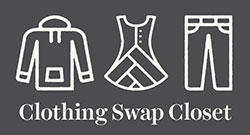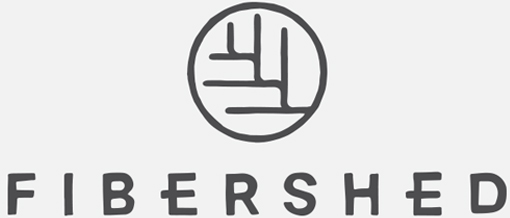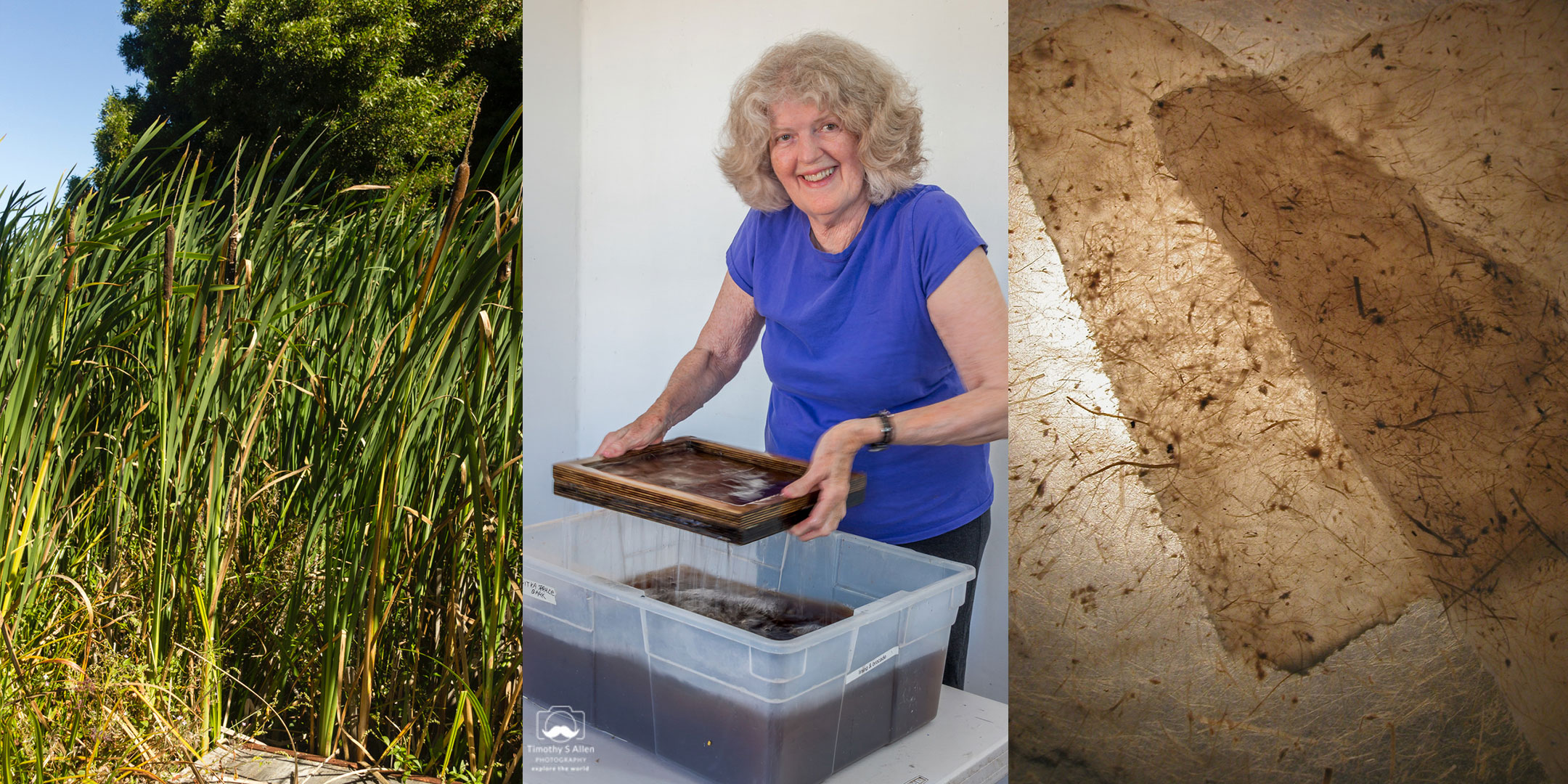
- This event has passed.
Papermaking from Scratch with Local Plants with Jane Ingram Allen
March 11, 2023 @ 10:00 am - March 12, 2023 @ 4:00 pm
$325Event Navigation
Learn to make paper with local plants using minimal equipment
Join us at the beautiful Fibershed Learning Center on Black Mountain Ranch near Point Reyes Station for a two-day workshop on how to make paper from scratch — starting with the local plant materials such as leaves and bark, and with minimal equipment and facilities. The workshop runs from 10 am to 4 pm each day.
The emphasis will be on creative problem solving and creative use of materials to make unique handmade paper art, using sustainable methods and materials that do not harm the environment.
Students will learn that papermaking art can be created successfully with ordinary household equipment and materials that you can find in your own backyard. Some pulps that the instructor will bring to supplement the ones found in the local area will also be used in the workshop, such as kozo (paper mulberry bark) and abaca (Musa textilis, a type of banana).
On-site plants that we will be working with include: willow bark, tule rush, sedge leaves, milkweed stalks, and hollyhock stalks. Jane will be bringing dogbane, cattails, and white mulberry branches from Sonoma County.
Instructor Jane Ingram Allen will introduce unique techniques (Japanese/Asian and Western) that she has developed from her experiences as an artist in residence in Japan, Taiwan, Tanzania, Indonesia, Nepal, Japan, Brazil, Thailand, China, England, Turkey and the Philippines as well as at art centers and nature parks in the USA.
Enroll here: eventbrite.com/e/473025982447
Outline of Workshop:
Day 1
- Introductions
- Plants for papermaking — pointing out local plants useful for papermaking and discussing characteristics and plant families
- Papermaking equipment and supplies, studio setup
- Gathering at least one plant material locally and preparing it for cooking
- Cooking plant material for pulp (alkalines, pots and other equipment, testing to see if done)
- Record keeping for paper making from plants
- Lunchtime — slide presentation and looking at samples, books and handouts
- Basic Western sheet forming, pressing and drying using prepared pulps
- Basic Japanese sheet forming, pressing and drying
- Using prepared pulps and Western molds and deckles
Day 2
- Evaluation and review of sheets made yesterday
- Washing cooked fibers (using strainer or lingerie bags)
- Beating cooked fibers (by hand with wooden mallet and using blender)
- Preparing vat (water, pulp, formation aid)
- Making samples with pulps from local plants
- Lunchtime — looking at sample books and record keeping
- Creative papermaking techniques such as laminating, additives, watermarks, color and stencils
- Open studio time to try all vats and do creative papermaking, mixing pulps
- Evaluation and ideas for further hand papermaking; taking things home to finish drying
Each participant should bring the following:
- Personal snacks, lunch and beverages
- Scissors that will cut fabric and plant fibers
- Small collection of things to put in the handmade paper (leaves, petals, string/thread, fabric scraps, photos, magazine cutouts, collage items, anything relatively flat — we will also collect things at the site of the workshop)
- A three-dimensional relief object that has interesting raised surface to put the paper on to dry and get embossments (we will also find many natural objects at the site) — these objects should be things that water will not harm, like glass, ceramic, metal, wood, etc.
- Wooden, plastic or cardboard sheet (about 18” x 24”) to put papers on to dry and take home if they are not dry at the end of the workshop
- Notebook and pen or pencil to make notes, and camera if desired
Tuition Scholarships & Transportation/Childcare Stipends
Fibershed is offering two scholarships to most workshops; one scholarship if it’s a small class. In addition to scholarships for tuition, we are offering a limited number of stipends for transportation and/or childcare. If you would not otherwise be able to attend, and would like to be considered as a scholarship and/or stipend recipient, please answer a few brief questions on this Google Form. Responses will be reviewed by Learning Center staff and kept strictly confidential.
Jane Ingram Allen is an installation artist who does art projects around the world using hand papermaking with natural materials and collaborative processes to raise public awareness about environmental issues.
Jane has received numerous awards for artist-in-residencies and community public art projects in the USA, the Philippines, Japan, Nepal, Brazil, China, Tanzania, Taiwan, Turkey and Indonesia. She was a Fulbright Scholar artist-in-residence in Taiwan in 2004 and 2005 and a Fulbright Specialist in Turkey in 2015. She received Puffin Foundation Grants in 2003, 2007, 2011 to support her art installations in New York and MA. She has also received grants from the Chenven Foundation, City of Sacramento, City of Santa Rosa, and other organizations around the world to support her work.
For her artworks Jane begins by making handmade paper from local plant waste and uses materials and techniques that contribute to sustainable living and improve the environment. Jane is a former college art instructor and currently writes about art for SCULPTURE and other art magazines as well as doing independent curating. Since 2012 she has been based in Santa Rosa, CA, and continues her work in the US and internationally.
Recent work: janeingramallen.wordpress.com
Archival materials: janeingramallen.com
(Photos at top, left to right: native cattail, Jane Ingram Allen (by Timothy S. Allen), backlit handmade paper)
 BONUS: The Clothing Swap Closet is now open during workshops and events at the Fibershed Learning Center!
BONUS: The Clothing Swap Closet is now open during workshops and events at the Fibershed Learning Center!
Visit the Clothing Swap Closet when you attend a workshop or event at the Learning Center and exchange your natural fiber garments and accessories. Your clothing contributions must be clean and in good condition. Each contribution entities you to choose one item of comparable value.
You may arrive up to 30 minutes early for the workshop you are attending, and/or depart up to an hour after the workshop ends, to allow time to browse and try on items in the closet, and make your trade!

